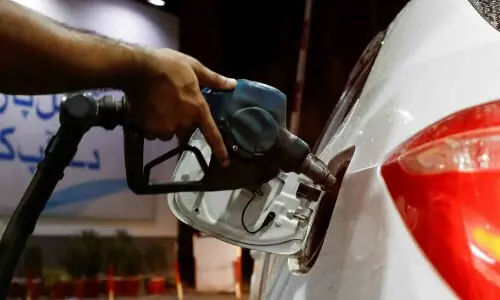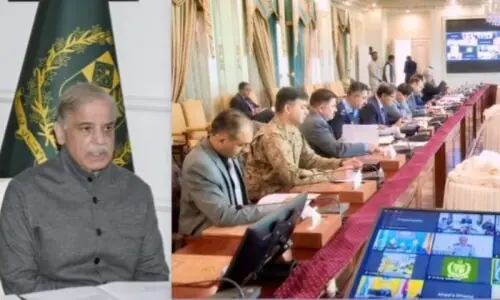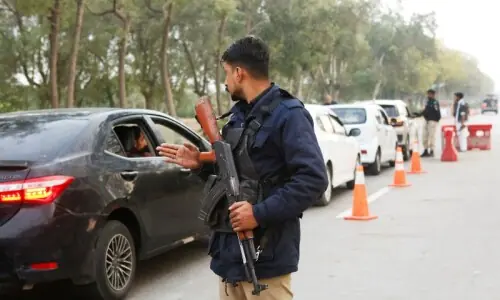The urban landscape of Pakistani cities is dominated by the presence of military monuments. Sighting fighter jets, submarines, tankers and canons, installed at roundabouts is routine experience. Erected as visual reminders of the nation’s strength and glory, these state-sponsored memories affirm the righteousness of our military, even its divine election. However, these sites are also evasions of memory, a denial of the state’s crimes of destruction and violence against others.
Ayesha Jatoi chose to challenge this denial through a public art performance. She picks as her venue, China Chowk, a roundabout in Lahore where a fighter jet from the 1971 war has been mounted. She shows up with a bucket full of clothes and begins to hang garments dyed red on the fighter jet during rush hour. For the passersby, it is hard to miss the reference of the blood red clothes to bloodshed, war and genocide.
Her simple performative gesture challenges official state histories, transforming the roundabout into a counter-monument that literally exposes the nation’s “dirty laundry.” Rather than recalling narratives of patriotic struggle, she forces us to remember 1971 as a moment of rupture and genocidal violence. The wet and limp red clothes evoke the bodies of the millions dead, faceless victims of brutal war crimes.
Such artistic practices of exposure are incredibly crucial at a time when our army is engaged in yet another war in North Waziristan. The very title of the military operation, “Zarb-i-Azb”, emphasises the state’s divine right to wage war, as Azb was the name of Prophet Muhammad’s sword. Our national culture continues to celebrate war within a hyper patriotic frame, which obscures and makes invisible the fate of real bodies.
Artists like Jatoi mobilise necessary tactics and strategies to confront and expose the construction and performance of the state’s denial, bringing into view the lives and faces of silent victims who are forced to live in zones of indistinction, spaces where the rules of law have been usurped and life itself blurred into death.
Published in Dawn, Sunday Magazine, November 15th, 2014
































